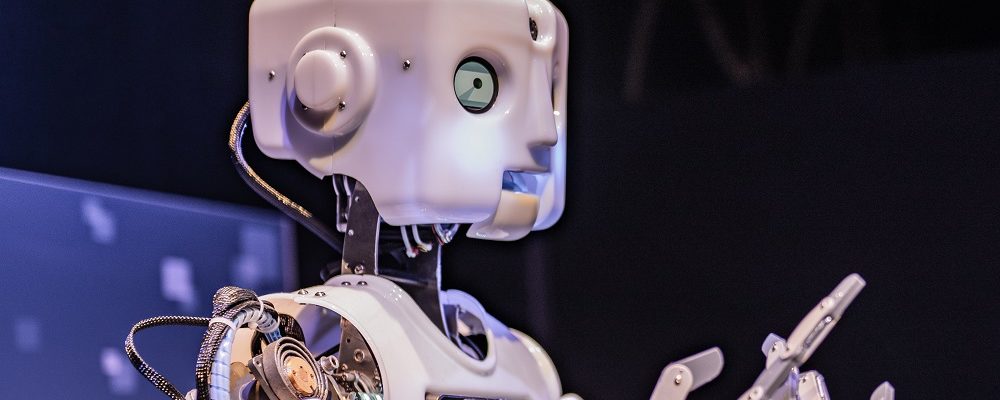Assumptions that artificial intelligence (AI) is forever lagging when it comes to ‘soft skills’ are facing a challenge from an emerging generation of humour-centric robots, according to a startling article from a team of academics.
Published at The European Business Review on 26 November, the piece provides leaders with a wake-up call, chipping away at the notion that AI still has a way to go before it can successfully ape some of the emotional reflexes that underpin interpersonal relations.
Led by Dr Jamie Gloor, senior lecturer in management at the University of Exeter Business School, the academics highlight several recent AIs that have pushed back the frontiers of what was thought possible – and raised a few laughs along the way – such as:
- humanoid robot Sophia (featured in a previous News & Views blog back in August), who has cracked jokes on US late-night television;
- robot standup comic Data, who responds intuitively to audience feedback;
- a German-made ‘irony-bot’ that has been programmed to dish out sarcasm, and
- a growing assortment of programmes cooked up in research labs that have been designed to serve up amusing acronyms, song parodies and puns.
“This suggests that AI-powered machines can indeed develop the sense of meaning and sensitivity to context that is necessary for skills like humour,” the authors write. (Gloor et al, European Business Review, 26 November 2020)
In their view, so-called ‘Funny AI’ is impressive “because humour requires several soft skills – creativity to combine seemingly unrelated concepts in a funny way and emotional intelligence to deploy it in an appropriate context, as well as to evaluate and respond to feedback.”
They note: “Unlike other soft skills such as creativity, acts of humor are inherently social, even ingratiatory and influential. Experts even pinpoint humour as key in Turing tests, or testing AI by seeing whether a person who interacts with it can determine that they are interacting with a machine rather than a fellow human.”
With all that in mind, they point out, “humour can be thought of as an extreme demonstration of whether robots have the socioemotional skills necessary for leadership. If robots can master humour, this suggests that they could be positioned to step into more-human roles that require exemplary soft skills, like leadership roles.”
What should flesh-and-blood leaders take away from this evidence that AI is fast playing catch-up on the soft skills front?
The Institute of Leadership & Management’s head of research, policy and standards Kate Cooper says: “At an event in Iceland three years ago, I spoke to a group of professors who specialise in AI. They were very much of the opinion that we were still quite a way from the emotionally intelligent robot – so the piece from Gloor et al makes for an interesting update on how AI has developed.”
She observes: “No doubt a robot standup comic that’s learning about what’s amusing people and getting better at it all the time offers a certain entertainment value. But on a human level, what we use laughter and humour for is to make connections. If someone makes you laugh, or vice versa, it creates a bond between you. And it’s no coincidence that if we look at some of the most desired characteristics listed on, for example, dating sites, sense of humour is invariably one of the most important.”
Cooper notes: “An AI tool may well be useful in specific situations where the communication is essentially one way or based on simple, transactional principles – or in which the type of action or information required falls within a strictly limited framework. But research has shown that the endorphins generated by laughter in social gatherings between humans promote ‘feelings of togetherness.’” (Medical News Today, 3 June 2017)
She adds: “This demonstrates that humour is about so much more than entertainment: it’s a device for building a sense of unity. As such, we may ask ourselves whether bonding with an AI tool is actually a desirable outcome. Perhaps what really needs to happen is for human leaders to hone their ability to use humour as a means of inspiring people and drawing them together.”
For further insights on the themes raised in this blog, check out the Institute’s resources on communicating
Source refs:
Gloor et al, European Business Review, 26 November 2020
Medical News Today, 3 June 2017
Image of intuitive robot at US exhibition courtesy of Alexander Oganezov, via Shutterstock

